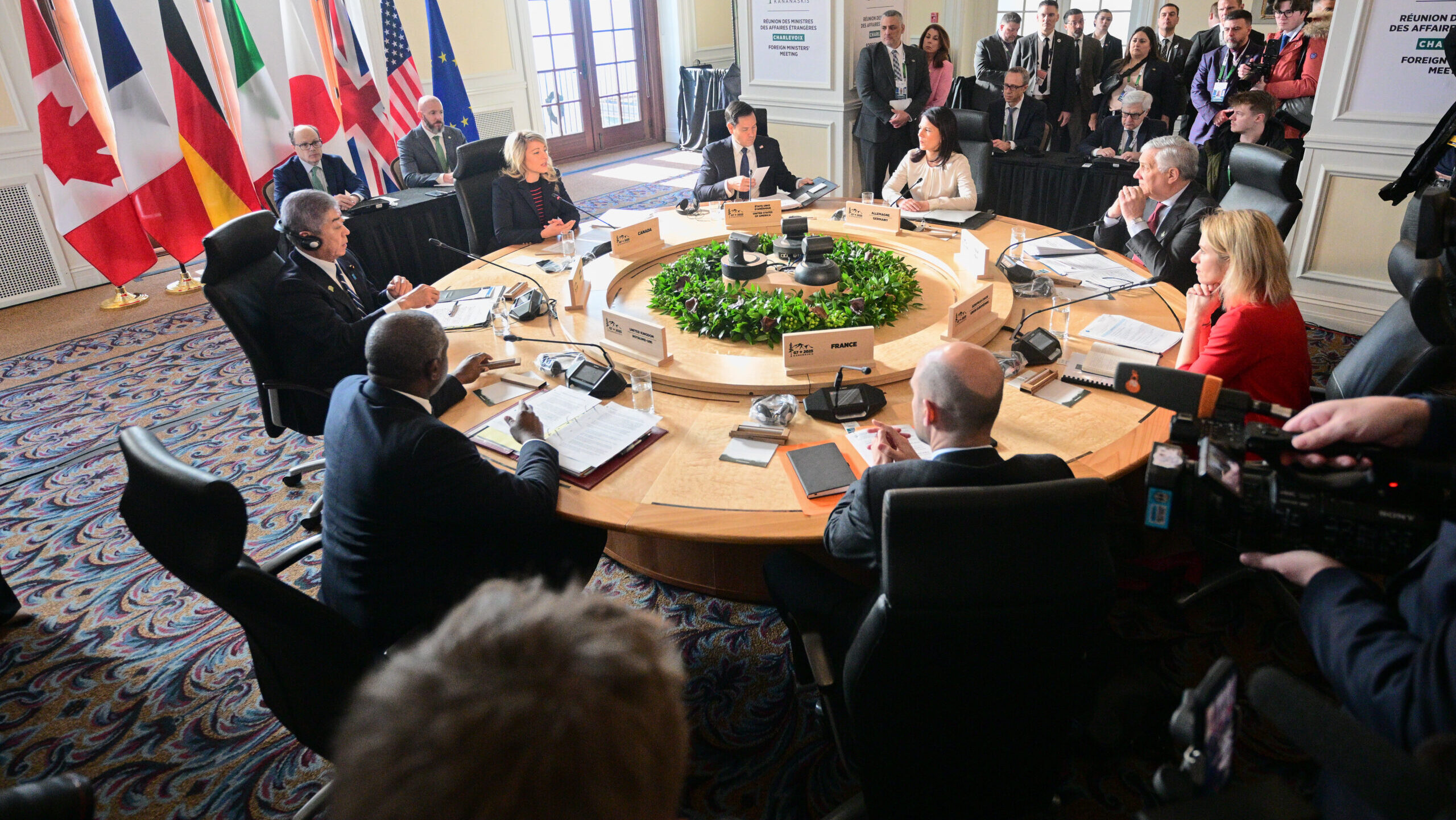G7 Foreign Ministers Condemn Hamas, Demand Hostage Release; Rubio Backs Call for Gaza Aid
US Secretary of State Marco Rubio joined other G7 foreign ministers on Friday in a wide-ranging joint statement reaffirming support for Ukraine, calling for renewed humanitarian aid into Gaza, and backing a political resolution for Palestinians—positions that notably diverge from the public stance previously maintained by the Trump administration.
The statement, signed by the top diplomats of the United States, Canada, France, Germany, Italy, Japan, the United Kingdom, and the High Representative of the European Union, noted several global challenges—including Russia’s aggression in Ukraine, regional tensions in the Middle East, and concerns about China’s actions in the Indo-Pacific.
Give the gift of hope
We practice what we preach:
accurate, fearless journalism. But we can't do it alone.
- On the ground in Gaza, Syria, Israel, Egypt, Pakistan, and more
- Our program trained more than 100 journalists
- Calling out fake news and reporting real facts
- On the ground in Gaza, Syria, Israel, Egypt, Pakistan, and more
- Our program trained more than 100 journalists
- Calling out fake news and reporting real facts
Join us.
Support The Media Line. Save democracy.
Addressing Middle East instability, the G7 ministers called unequivocally for the release of all hostages held by Hamas in Gaza, condemning the group’s violent actions, including the October 7, 2023 terror attacks against Israel. The joint statement also condemned Hamas’ treatment of hostages, specifically criticizing the use of “handover ceremonies” as violations of dignity.
In a notable shift, Secretary Rubio supported sections of the G7 statement calling for resuming unhindered humanitarian aid into Gaza and for creating a political horizon to resolve the Israeli-Palestinian conflict. This marks a departure from the Trump administration’s recent positions, including backing Israel’s recent decision to halt humanitarian aid to Gaza, and silence on settler violence and Palestinian political aspirations. However, the joint statement avoided explicit mention of a two-state solution, possibly softened at the request of the State Department.
Additionally, the foreign ministers emphasized unwavering support for Ukraine’s sovereignty and territorial integrity, praising ongoing peace efforts including a recent US-Ukraine meeting held in Saudi Arabia. The ministers specifically called for Russia to agree to an immediate ceasefire on equal terms, warning of additional sanctions, including caps on oil prices and the potential use of immobilized Russian assets, should Moscow refuse. They also condemned assistance provided to Russia by North Korea, Iran, and China as “decisive enablers” of the war.



